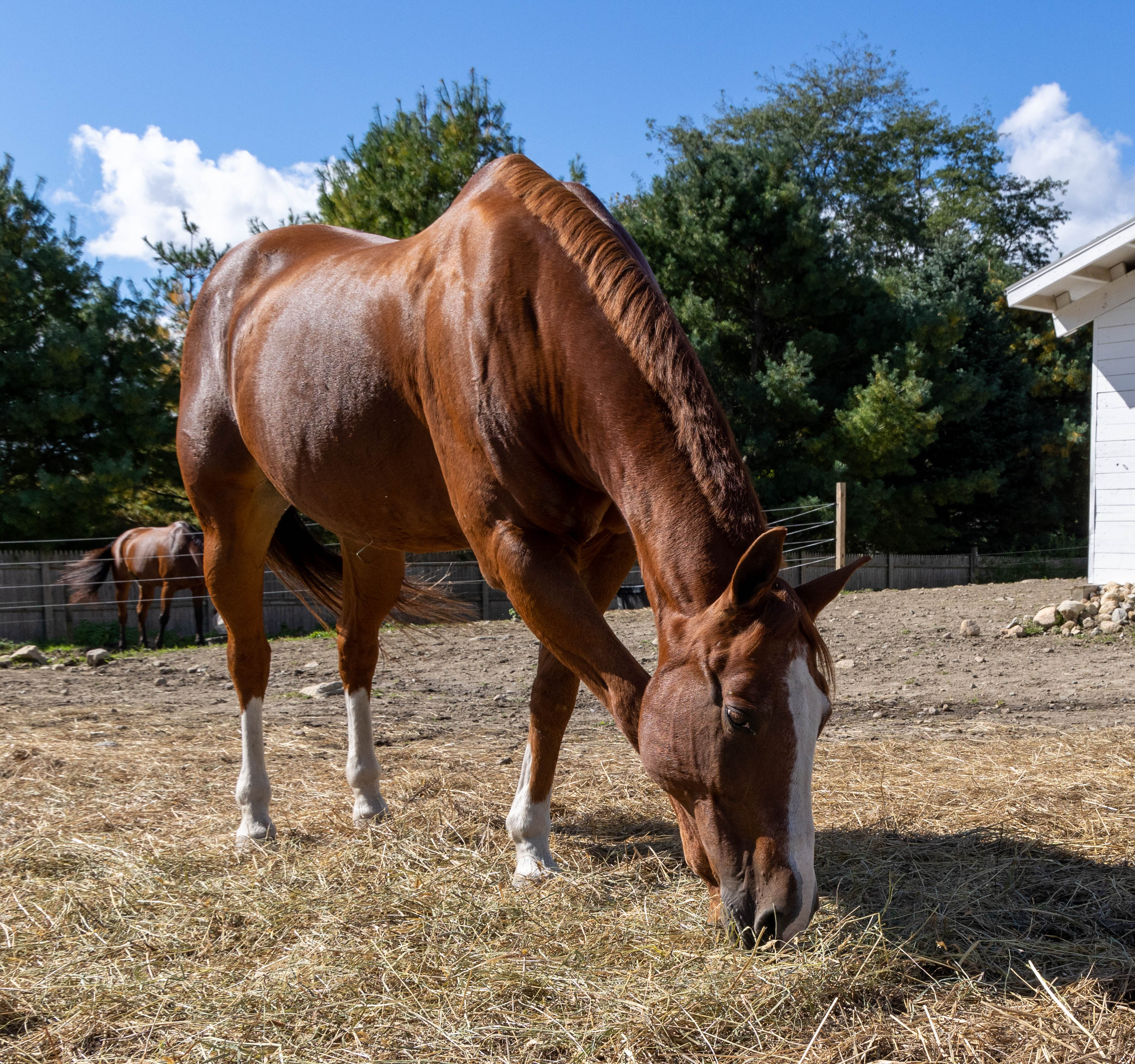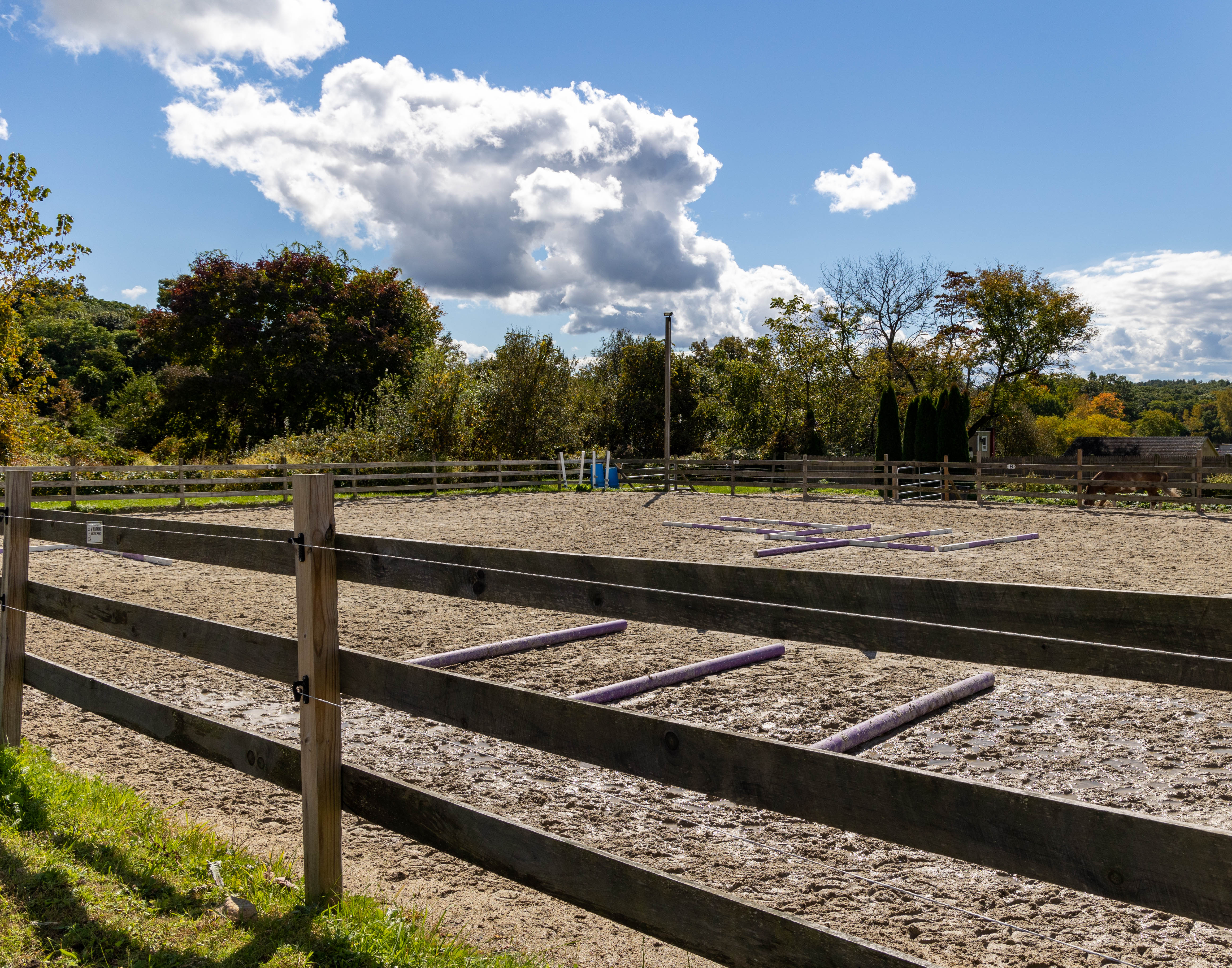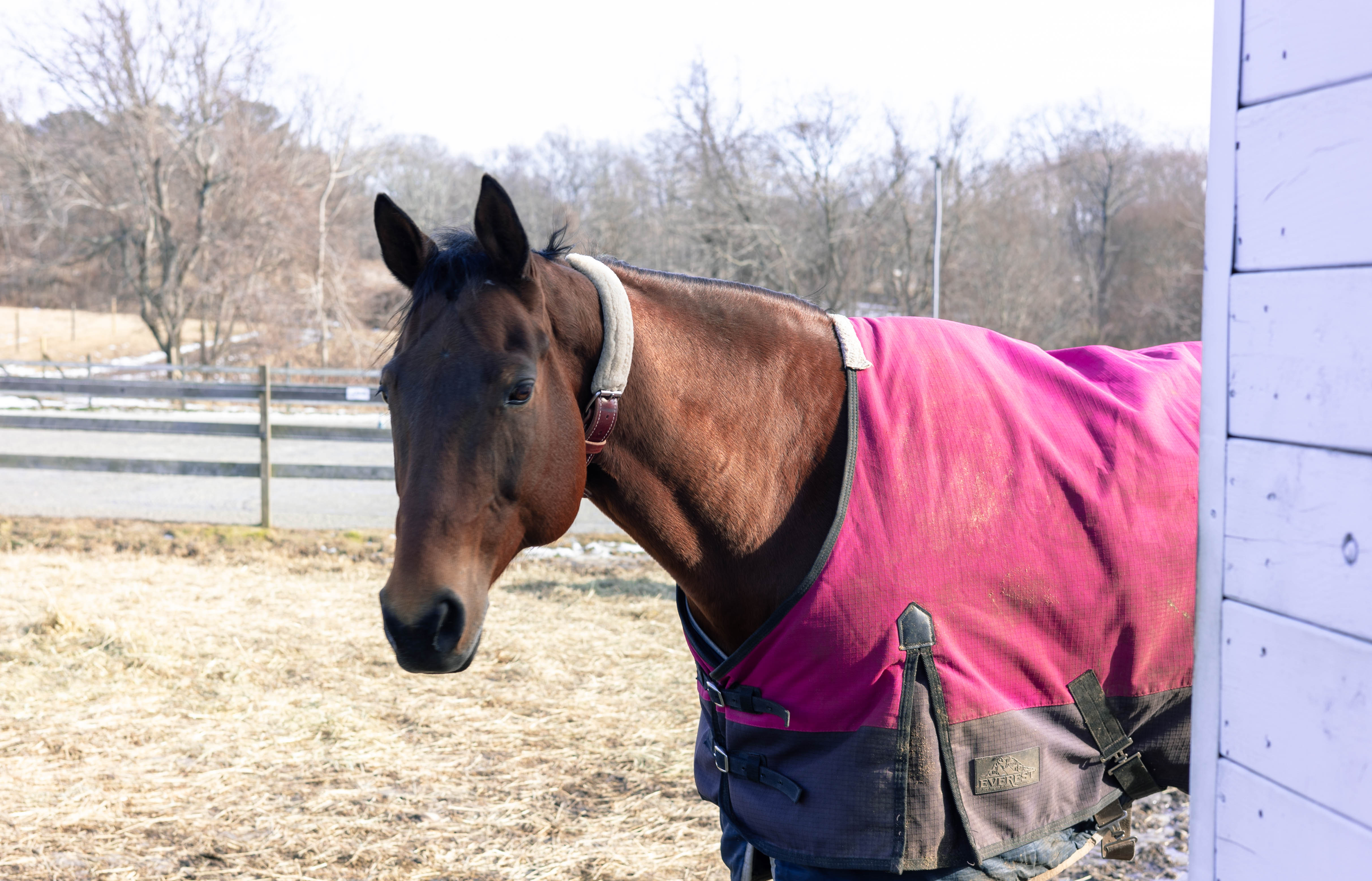As a new horse owner you may not have been around many barns. You may have taken lessons or even leased but there’s a chance you haven’t spent time in more than on or two facilities. If that’s the case, here are my best tips on how to be a good boarder and keep your horse and the barn staff happy at any farm. And if you’re not a rookie horse owner you should still keep these tips in mind to help you maintain good relationships at your barn.
The barn can be an oasis but it can also turn into a toxic and drama filled environment quickly if multiple customers don’t follow the rules and etiquette of boarding. Or if the farm’s management is struggling to run the facility well. If you are considering changing barns because the facility is not run well, check out this article I wrote for Savvy Horsewoman all about handling this big decision.
If you are considering buying a horse and haven’t found a boarding facility yet, check out this article on how to choose a good quality barn. And, here’s another article on the types of board that are commonly offered in the United States.
Pay Board On Time
Always pay your bill on time.
Horse farms have very slim profit margins and often times break even on board. Many farms only profit on training, lessons, horse shows and camp.
When you don’t pay your bill on time the farm owner or barn manager still has to purchase supplies for your horse. Your horse still requires the same amount of feed, bedding and manual labor whether you pay or not.
Running a farm is extremely difficult even in the best of circumstances, when one customer or a couple of customers pay late it has a big impact on everyone. If you want to read more about what goes into running a horse farm, check out this article all about running a large scale training operation.
Don’t Run Out Of Supplies If Rough Boarding
It happens, many of us have been there. Your hay delivery is delayed or some of your grain spoiled or the store was closed, there was ice on the roads etc. These things can’t be avoided, but you should do your best to never run out of supplies.
If you rough board your horse and run out of supplies you will have to borrow from another boarder or the barn owner so your horse can eat. This is the type of behavior that can be forgiven or even excused as a one time thing. If you have a real emergency and need to buy some hay or bedding off of someone else, then do it.
But, always pay for the items and do not borrow with a promise of giving it back after your supplies arrive. And, don’t make this a habit! And lastly, if you find yourself in this situation, ask permission! Do not borrow from anyone else without permission.
If you’re rough boarding your horse, there’s a chance someone in your barn will run out at some point. And, another boarder may ask you for feed or bedding.
Don’t Use Other People’s Equipment
This is just one of those things that shouldn’t have to be said. But, I’ve witnessed it quite a bit over the years. Being respectful of other people and their belongings is crucial to keeping your barn a pleasant atmosphere.
Unless you have permission, don’t borrow or use anyone else’s equipment. Just like people, horses have germs and can have skin infections, fungus or bacteria. You should never use someone else’s saddle pad or brushes on your horse.
And, if another boarder or the farm owner allows you to borrow tack like a saddle, bridle, girth or martingale, be sure to clean it when you’re done.
Be Courteous In The Arena
Here are the basic rules to being courteous and respectful when riding in the arena.
- Pass left shoulder to left shoulder
- Pass on the inside when traveling in the same direction
- Give lesson students the right of way even if they fail to follow the rules above. *Especially beginners who are just learning to steer.
- Follow directions of the instructor if they are teaching another student and
- Clean up manure
- Put away equipment you took out
- If your horse is acting up and the ring is busy, wait for it to quiet down or keep your horse away from others.
- If you are lunging, keep your horse off the rail so people can pass.
- Try to ride at times when the arena won’t be busy
- If someone gets into your space or accidentally cuts you off, stops in front of you or scares your horse, be cordial. Even if you are upset, try to communicate calmly.

Communicate With Barn Manager When There’s A Problem
If you have an issue with another boarder or your horse communicate proactively with the barn manager. Don’t allow problems to escalate because you’re afraid to speak up. And, discuss concerns ahead of time with the hope that a problem can be avoided all together.
However, sometimes accidents happen or the barn staff inadvertently misses something. When an issue arises communicate it promptly to your barn manager and do so respectfully.
Don’t Cause Drama
Some barns are just filled with more drama than others. For starters, choose a barn that does not tolerate or enable this behavior. And, once you’re happy with your current barn, don’t start up the drama. The best way to avoid this is to keep your opinion to yourself.
Sometimes the drama is not even started with mal intent. Don’t complain about the barn staff or other boarders to another boarder. Don’t criticize other riders, the instructor or the staff.
Clean Up After Yourself
Here’s a list of items to make sure you clean up every time you spend time at the barn with your horse.
- Put grooming tools, fly spray, coat polish etc.
- Clean up manure and hoof droppings
- Sweep up hair and dirt from grooming
- Hang your halter and lead neatly on your stall
- Fold blankets neatly
- Put away tack correctly and cover your saddle
- If you leave a saddle pad out to dry, leave it out of the way and in your designated area.
Respect The Property
In addition to cleaning up after yourself you also need to respect the property by avoiding areas you don’t have permission to be in and following the barn rules.
Be sure to close any gates you open, avoid smoking on the premises, don’t go in paddocks with horses you don’t own. It’s also a good idea to stay out of chicken coops, rabbit cages, the hay loft (unless you have designated space in the loft), the feed room and non-boarder tack rooms.
If you use up the toilet paper in the bathroom, take out a new roll. If there isn’t any, bring some to the barn. Avoid screaming, yelling and running in the barn. If you bring your children with you to the farm, make sure they follow the barn rules.
Don’t Feed Your Horse Extra
As mentioned at the beginning of this article, profit margins are typically very tight when it comes to farms. The price of feed and supplies is calculated into the price you pay for board. If you feel your horse needs to eat more or needs more bedding in his stall, talk to the barn manager.
You will have a few options in this scenario.
Either work with the barn manager to make changes that your board payment covers. Pay for extra if your horse is a hard keeper. If your horse needs extra bedding because they are recovering from an injury or is a complete slob in their stall, pay for the extra supplies.
If the farm is not meeting your horse’s needs because they are pinching pennies and your horse’s care is suffering, then you need to change barns.
The bottom line is, you should not take extra supplies for your horse without permission. People do it all the time because they think they are entitled to the supplies used to care for their horse. However, taking supplies without permission is stealing.
If you’ve decided you need to change barns and want to make sure your horse is well cared for in the interim, buy some extra supplies and provide the care yourself until you move.
You can provide good care for your horse and still be respectful of the farm at the same time.

Be Up Front About Your Horse’s Personality Before You Move In
It’s important to accurately represent your horse when you checking out prospective facilities. You want to know that the farm can provide appropriate care for your horse.
This means, if your horse has a habit if breaking fences and escaping his paddock, give the staff a heads up. Maybe instead of finding out the hard way and risking injury, they can reinforce fencing, use electric fencing and keep an eye on your horse. The farm manager may even have a solution that would benefit your horse long term.
If your horse has vices like cribbing, stall walking or weaving, you need to let the farm manager know. Even if it means they won’t let you in. If you’re dishonest, chances are they’ll ask you to leave once they discover your horse exhibiting these behaviors to begin with.
The farm may also have ways to reduce this behavior by feeding your horse hay more frequently throughout the day to keep them from cribbing. Maybe they can turn your horse out first in the morning to prevent them from weaving. And most importantly, the staff can monitor your horse for signs of colic.
Another example is if your horse has poor ground manners or exhibits dangerous behavior. In order to keep the barn staff safe, they need to be aware of these issues. And, there’s a good chance they can help you teach your horse to behave better.
Give Adequate Notice Before You Leave
There may come a time when the barn you board at is no longer the right fit. It could be due to the distance you have to travel to get to the farm, you move out of town or you start to work with a new trainer. No matter the reason, it is important to give adequate notice before moving your horse per your contract.
Leaving on good terms is important too. The horse world is a very small world and news spreads quickly. Unfortunately, barn owners talk to each other.
If you fail to take the high road in these situations, you may have trouble getting into another barn.
If you feel your horse will be unsafe after providing notification to the barn manager that you’ll be moving then you’ll need to find another way to handle the situation calmly. That may mean making arrangements quietly and not giving notice. But this should be reserved for extreme circumstances.
Barns are used to customers coming and going. Many barns are very professional and want the relationship to end on a good note with the hope of getting your business again in the future.
I hope you found this article helpful! If you did, please give it a share!

